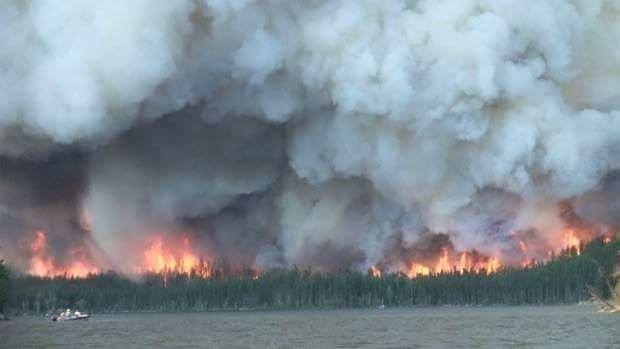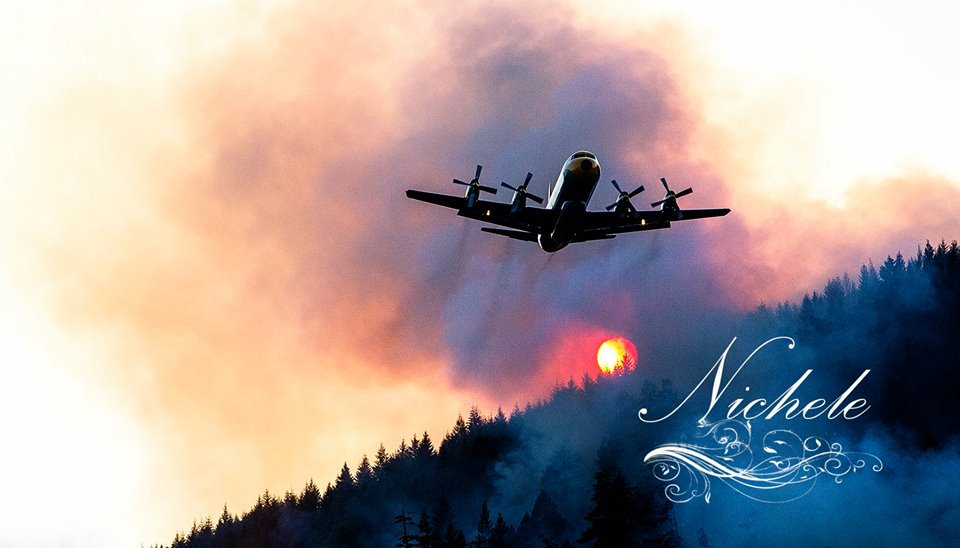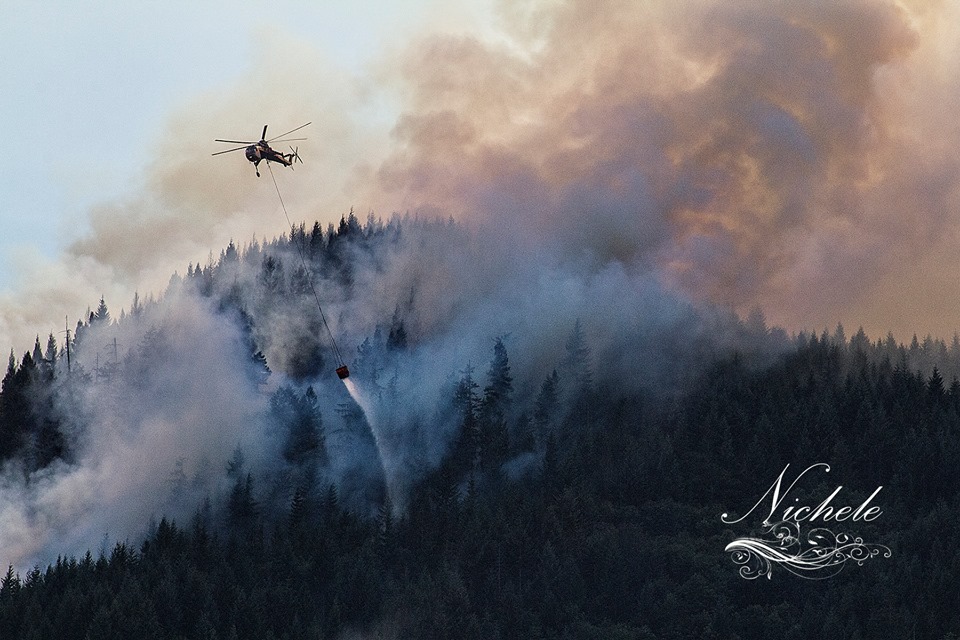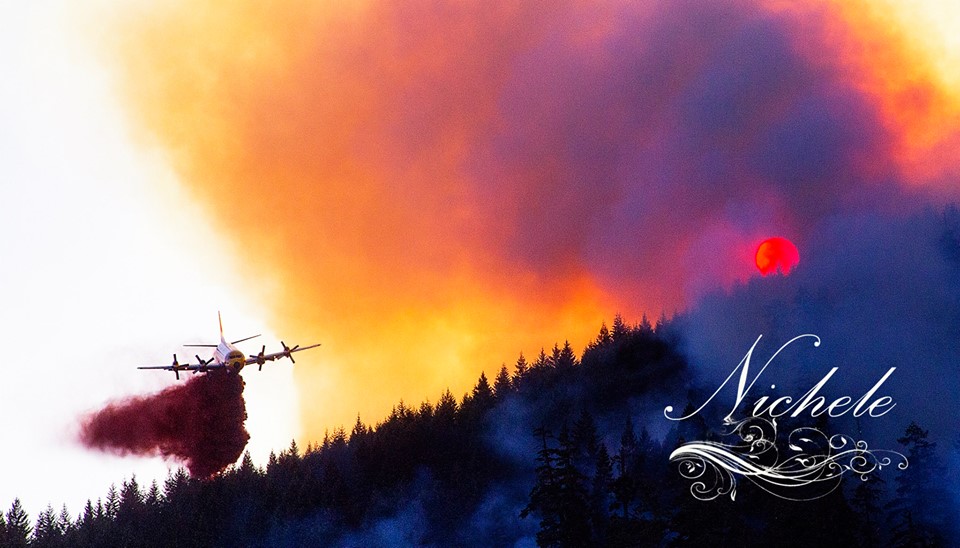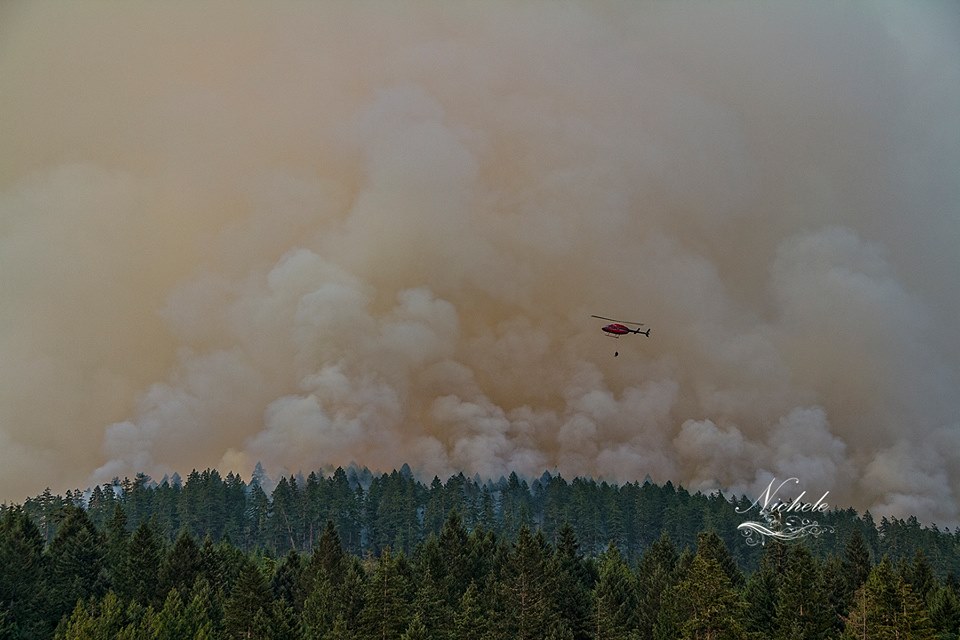A Bad Fire Year?
Photo (Web Source): A fire burns out of control in Northern Saskatchewan, north of Prince Albert. Across western Canada wild fires have consumed millions of acres of timber and killed an untold number of wildlife caught in the path. While only one death has been reported, that being a firefighter, Johnny Phare of Roberts Creek, on the Sunshine Coast, thousands of homes are threatened and many have already been destroyed and the danger level is extreme. Over 7000 people have been evacuated from several native communities in Northern Saskatchewan with an undisclosed number being relocated to my home town in Cold Lake, Alberta. (More photos in footer)
Introduction
On watching the local and national news tonight I listened as the Premiers of British Columbia and Saskatchewan commented on the challenge being faced by firefighters across their Province. Resources were being stretched to the limit and in some areas of Saskatchewan the military have been called in to assist. The Premier of Saskatchewan stated on Global National that he has placed a call to the Prime Minister, but did not elaborate on what he intended to ask the P.M. My goodness, the Province is burning, the military have been called in, 7000 people evacuated and the P.M. has not yet checked in with the Premier to see what national resources might be needed?
On the local news, a citizen from Port Alberni on Vancouver Island reported that earlier today a fire had started across Sprout Lake across from his home. 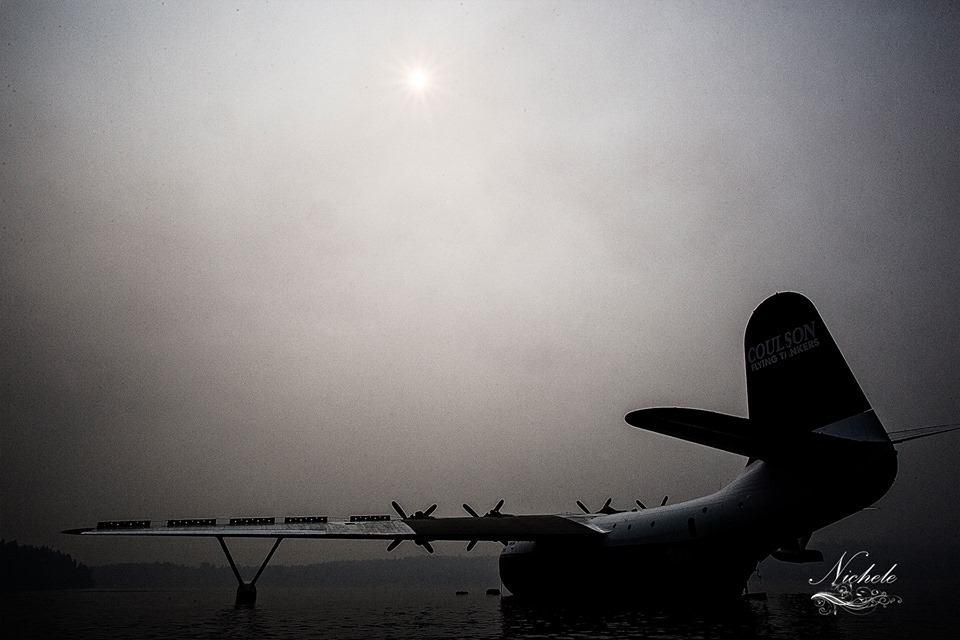 The fire was not threatening his property, but the man felt it needed immediate attention or would soon be out of control.
The fire was not threatening his property, but the man felt it needed immediate attention or would soon be out of control.
Photo (Nichele Studios, Port Alberni) This photo was taken by Paulette a day after the fire started. A giant Martian Mars water bomber sits idle under a smoke shrouded noonday sun on Sproat Lake just outside Port Alberni.
All but for the want of contract approval by the BC Government, that bomber would have been available it to tackle the Dog Mountain fire minutes from where it was moored shortly after the fire was called in. A contract was eventually signed and when the smoke cleared for a brief period under light winds, the bomber hit the fire with everything it had. However, by that time the fire had spread and done an incredible amount of damage to the pristine forests of Dog Moutain (more photos in footer). Update: Five days later that fire is still not fully extinguished.
Also on the local news this evening, a spokesperson for the Fire Service indicated they could not attend the Alberni as they can only tackle fires on a priority basis because they do not have enough crews to go around and, at the present moment, all resources were assigned to the out of control blaze in Sechelt (north of Vancouver) where homes were homes were threatened. In other news reports this is being reported as a “bad fire year” and British Columbia, Alberta and Saskatchewan have already used up their wild fire budgets for the year.
There is no simple way to draw this comparison so I will just wade in with the rhetoric. Imagine for a moment a crazed individual spouting Jihadist slogans attacked a government facility in Prince Albert, Port Alberni or Sechelt and in a selfless act of heroism an RCMP officer moved in, shot and killed the terrorist.
Within hours, the story would become international news as the Prime Minister and Federal authorities reaffirmed their commitment to wiping out terrorism around the world. Photos of masked ISIS fighters would flood the media and there would be renewed calls for more money, new laws and and greater co-operation in our fight to combat an elusive enemy that threatens the well-being of mankind. The people in La Ronge, Lack La Ronge Port Alberni, Sechelt and other communities threatened by wild fires would be all but forgotten. In Northern Saskatchewan it would be doubly disastrous as most of those communities are of aboriginal origin and we well aware of the federal approach to those groups.
A Word About our Past
My Dad, Dave McNeill, at one time in the early 1940’s, worked at a fire lookout station near Meadow Lake, Saskatchewan, an area not far from the current mass evacuation. In those years every able bodied man who could be spared was conscripted to help fight a fire as everyone agreed, saving forests, habitat, homes and communities was extremely important. It leaves me stunned that we (that being our government) can choose to spend (or lose) billions on items of questionable benefit (suppression of terror being one example), yet we can let our land burn and in masterful understatement, call it nothing more than a ‘bad fire year”.
Another friend on Facebook, Alan Price posted this comment about the situation:
Alan: “I can’t resist passing on the commentary from today by Howard White, an old friend and owner of Harbour Publishing Company based in Pender Harbour on the Sunshine Coast. Howard White has always had a way with words, and calls a spade a spade. I remember well the days he is talking about, when my dad and brothers Barry and Dave were conscripted, along with most of the staff of Quality Spruce, a small sawmill in Topley B.C. where they were working, to go and fight a nearby fire close to Chinanose Mountain.”
Howard: “When I was a kid the biggest thing in Pender Harbour was the BC Forest ranger station, which had about ten staff, a fleet of boats, a barn full of firefighting equipment and a fleet of Land Rover 4X4s. There was another ranger station in Sechelt and another in Powell River. During fire season, these people went around putting out fire prevention information and enforcing woods closures.
When a fire started, they went from house to house conscripting able-bodied men forming fire-fighting crews the size of small armies. They also conscripted any heavy equipment they needed. It was very effective. In the 1980s the Bennett and Vander Zalm governments gutted the BC Forest Service and closed most of the regional stations along with their proven fire fighting capacity to cut costs. I can’t help thinking about this as our Old Sechelt Mine fire grows from 65 to 80 to 150 hectares doing millions in damage with only small overworked crews of contract firefighters attempting to control it.
On Saturday when it was supposed to almost out but really jumped from 65 to 80 hectares, I flew up from Victoria and watched it rage for about half an hour. During that time I didn’t see one water bomber, although there were two helicopters sitting idle at the Sechelt airstrip. Meanwhile the government argues against activating the Martin Mars, the “Big Nuke” of waterbombers because it has higher operating cost than smaller planes. And we’re still just at the start of this summer.
I just wonder how bad it’s going to have to get before the government gets serious about dealing with this impending state of disaster. Not just this year, but in the years to come as global warming continues to dry up the rainforest. Hopefully public outrage over this mess we’re in will force the provincial government to get back on the job of properly protecting BC’s number 1 resource.”
Conclusion
Of course, I side with Alan Price and Howard White and wonder how it is we continue to disregard a ‘clear and present’ danger while continuing to harp(er) on about a danger that has gobbled up trillions and produced little other than rhetoric. Perhaps, as many have already suggested, it will take a catastrophic event (all ice in the north of Canada melts as our forests burn) to finally force us to wake up and start taking action. When that happens terrorism will be of such trifling consequence that we will never know it even existed.
Now we can’t blame the men and women of the Fire Service who are working to control these catastrophic fires. They are doing an amazing job with the limited manpower and equipment at hand. Here in BC as elsewhere, they are spread thin and doing the best they can as they no longer have the resources to deal with widespread wild fires such as this. It is tragic one man has died (take time and read his story), but what if he and the others had the support and infrastructure my Dad and the people Howard White speaks about back in the day.
If they had, I rather expect at least some of those wild fires that have grown out of control would have already been suppressed at an earlier stage. Let’s raise the level of importance of this challenge to ‘critical’ — then give the forest service the money, tools and the legislate power (including conscription if necessary) to help fight this battle, just as we have given Security Services unfettered access to money and legislative power in recent years.
And, as a final point, let’s get serious about Global Warming. It may not be the entire problem, but let’s not wait around to find out it was until it’s to late.
Regards,
Harold
The Value of habitat goes far beyond the short term and that social media can help. The power of social media in bringing attention to various issues has increased exponentially in recent years. Everyone from Egypt to Vancouver Island knows that.
On the news last night two bear cubs were live captured by a Wild Life Service employee, a young man perhaps in his early thirties. Unfortunately, he had been told to kill the cubs rather than try to save and relocate. When he disobeyed he was summarily fired. Social media outlets grabbed the story and it soon went viral along with a video of the capture after it was tweeted to six million follows of a celebrity. The Wild Life Service who fired the young man is now in deep damage control. That is the power of social media.
Unfortunately, some issues fail to catch hold as there are not always cuddly little bears or seal pups being protected from certain death and we also have a young man who disobeyed orders to save them. An unbeatable combination.
Today across the three Western Provinces hundreds of thousands of acres of prime forest is being destroyed by wild fires and in those burned forests millions of creatures big and small have died or will die. That likely includes a fair number of cute, cuddly, loveable animals, but no one will ever know how many as it is never talked about. Their plight will go by unnoticed the safety of people become the prime concern, the value those forests as habitat for all forms of wild life is simply not counted in any data that is ever produced. We need to begin reconfiguring our priorities if we are to save our planet from almost annihilation. The next time you drive by a burned out forest that once stood tall and proud, stop and take a moment to contemplate how much was lost. Don’t just think, hmm, how ugly, to bad. Think instead, how could I push to make a different outcome? What if people became as excited and motivated over the loss of that habitat as they have about a couple of little bears?
Dog Days of Summer
The following photos were taken around the area of Dog Mountain by Paulette and Roberto Nichelle whose home is nearby in Port Alberni, British Columbia. Their photos, along with others collected will be displayed a ‘before, during and after’ collage of what it means to lose a forest and all the life that called that forest home.
It is certainly devastating for people who lose their homes and possible livelihood, but it is equally devastating for all the rest of the living things who also lose everything and that often includes their lives. While we might drive a forest that was devastated by fire, we probably don’t give much consideration to the full cost of that loss.
The new post will be up and running within a week.
Cheers, Harold
The following sample photos by Paulette and Roberto earlier this week and posted on Facebook. Paulette and her husband always take the most amazing photos. (click to open in full size)
(421)
Tags: Alan Price, Dave McNeill, Howard White, Johnny Phare, Martian Mars Water Bomber, Prince Albert Wild Fires, Wild Fires
Trackback from your site.

